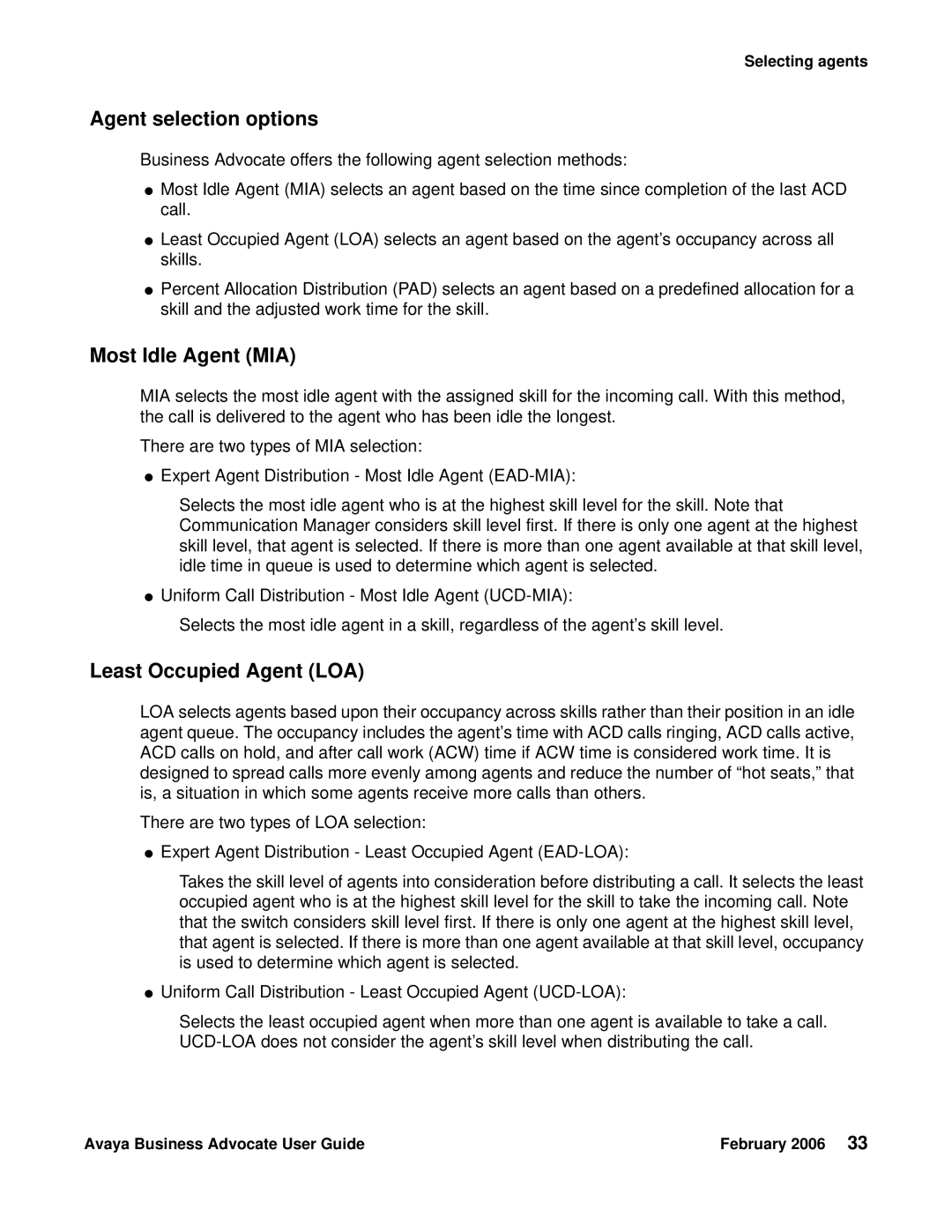Selecting agents
Agent selection options
Business Advocate offers the following agent selection methods:
●Most Idle Agent (MIA) selects an agent based on the time since completion of the last ACD call.
●Least Occupied Agent (LOA) selects an agent based on the agent’s occupancy across all skills.
●Percent Allocation Distribution (PAD) selects an agent based on a predefined allocation for a skill and the adjusted work time for the skill.
Most Idle Agent (MIA)
MIA selects the most idle agent with the assigned skill for the incoming call. With this method, the call is delivered to the agent who has been idle the longest.
There are two types of MIA selection:
●Expert Agent Distribution - Most Idle Agent
Selects the most idle agent who is at the highest skill level for the skill. Note that Communication Manager considers skill level first. If there is only one agent at the highest skill level, that agent is selected. If there is more than one agent available at that skill level, idle time in queue is used to determine which agent is selected.
●Uniform Call Distribution - Most Idle Agent
Selects the most idle agent in a skill, regardless of the agent’s skill level.
Least Occupied Agent (LOA)
LOA selects agents based upon their occupancy across skills rather than their position in an idle agent queue. The occupancy includes the agent’s time with ACD calls ringing, ACD calls active, ACD calls on hold, and after call work (ACW) time if ACW time is considered work time. It is designed to spread calls more evenly among agents and reduce the number of “hot seats,” that is, a situation in which some agents receive more calls than others.
There are two types of LOA selection:
●Expert Agent Distribution - Least Occupied Agent
Takes the skill level of agents into consideration before distributing a call. It selects the least occupied agent who is at the highest skill level for the skill to take the incoming call. Note that the switch considers skill level first. If there is only one agent at the highest skill level, that agent is selected. If there is more than one agent available at that skill level, occupancy is used to determine which agent is selected.
●Uniform Call Distribution - Least Occupied Agent
Selects the least occupied agent when more than one agent is available to take a call.
Avaya Business Advocate User Guide | February 2006 33 |
